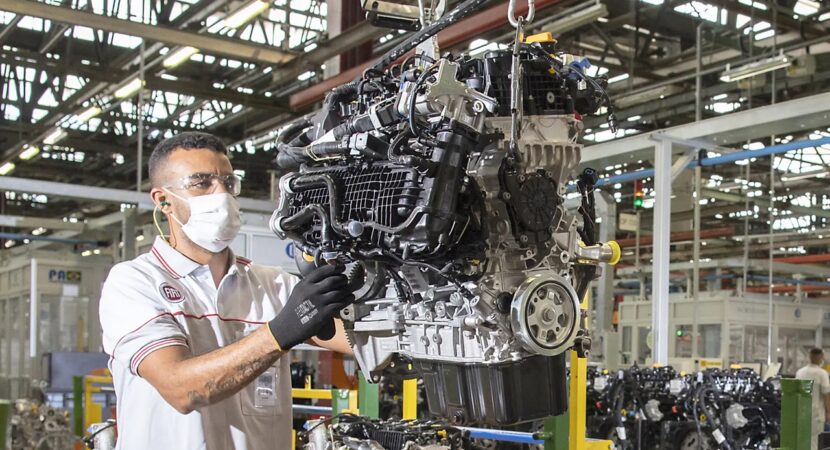
Ethanol was once a much cheaper alternative – compared to the price of gasoline – and can guarantee the survival of combustion engines in the face of the current race of electric car manufacturers
Neither the past of who had the first ethanol car in the world nor the future were able to motivate Fiat to continue the development of the E4 engine, an alcohol version of the 1.3 GSE Turbo engine that is debuting now, in Brazil, with the Fiat Toro 2022.
Read also
- IMMEDIATE job openings to work on the works at the Jaguatirica II Thermoelectric Power Plant
- After Sony, Ford, LG and Mercedes-Benz leave the country, the largest cement manufacturer in the world will end production and leave Brazil
- Direct sale of ethanol from plants will stimulate competition and curb the increase in gasoline prices at gas stations
- Ethanol and gasoline prices soar, Petrobras increases CNG by 39% and readjustment could further impact Brazilians' pockets in the coming weeks
The 1.3 GSE Turbo ethanol engine, announced two years ago, together with the investment of BRL 500 million to produce the new family of turbo engines (which also includes the 1.0 GSE Turbo that will debut in Proggeto 363) in Brazil, the so-called E4 engine, would be focused on high energy efficiency in burning vegetable fuel.
Fiat informed, at the time, that it was developing an engine “with turbo technology aimed only at ethanol combustion” and that it would have a “national patent”. The objective would be “to reduce the consumption gap of ethanol in relation to gasoline, which is currently 30%”.
The idea of a turbo ethanol engine was old
QUATRO RODAS discovered, at the time, that the idea of an alcohol turbo engine was old, from the times of the 1.4 T-Jet engines, and that there was a patent registration for a “high efficiency ethanol engine”, registered with the INPI (National Institute of Industrial Property) since February 1, 2013.
However, the E4 engine project ended up serving as a laboratory for the creation of the flex version of the 1.3 GSE turbo engine. Today, Stellantis discards the production of engines powered exclusively by alcohol, also due to consumer acceptance. After all, it would be available in cars like the Fiat Toro and Jeep Compass, which are at a price point where the price of fuel is not a big problem.
How does the 1.3 GSE Turbo engine overcome the problems of flex-fuel engines?
Fiat never made a point of hiding that the project was based on the 1.3 GSE turbo engine, which, in itself, is very modern. The automaker's objective would be to transform it enough to raise its efficiency with ethanol to a level not yet seen – and which flex engines are far from delivering.
But the version that debuts now with the new Toro, which will soon be on the 2022 Jeep Compass, is flex-fuel and was thought to have the best consumption with both gasoline and alcohol.
After Chevrolet, Ford and Volkswagen, the multinational Fiat suspends vehicle production at its factory and puts 1900 employees on collective vacation
After the departure of the automaker Ford from Brazil, the global supply crisis and the pandemic that made car factories such as Chevrolet, Honda, Audi (Volkswagen), Scania, Volvo and Mercedes-Benz, Renault and Nissan suspend vehicle production. Now, it's the turn of the automaker Fiat, and the country's auto industry may collapse.
Last Monday, it was the turn of the Fiat factory in Betim to interrupt the second production shift, due to a lack of inputs, leading 1900 employees to go on vacation for the initial period of 10 days.
Fiat did not inform the volume of vehicles that will no longer be produced or the models most impacted by this stoppage. In March, the automaker also had to stop production for the same reason.
Fiat and Chevrolet face similar problems due to component supply shortage available in the global market. Industries, which depend on raw materials to manufacture their products, are no longer able to produce their goods in sufficient quantity.













Ronaldo shines a lot in Corinthians
Ronaldo shines a lot in Corinthians
These advances are important, but for…
Show when it arrives here I'll buy one…
I am interested
...I do not know!!! The Corolla 2024 has an engine…
And in the state of Bahia?
Ranger with cat emblem